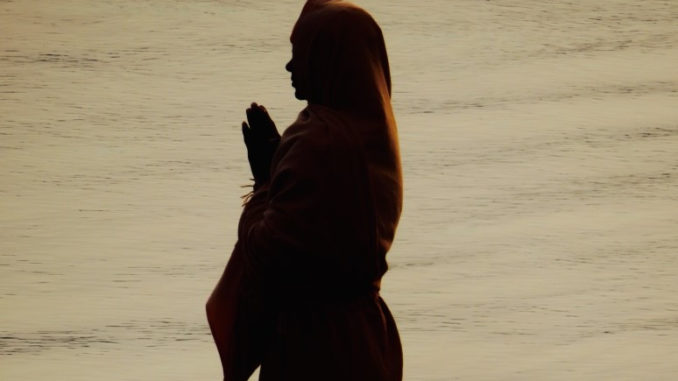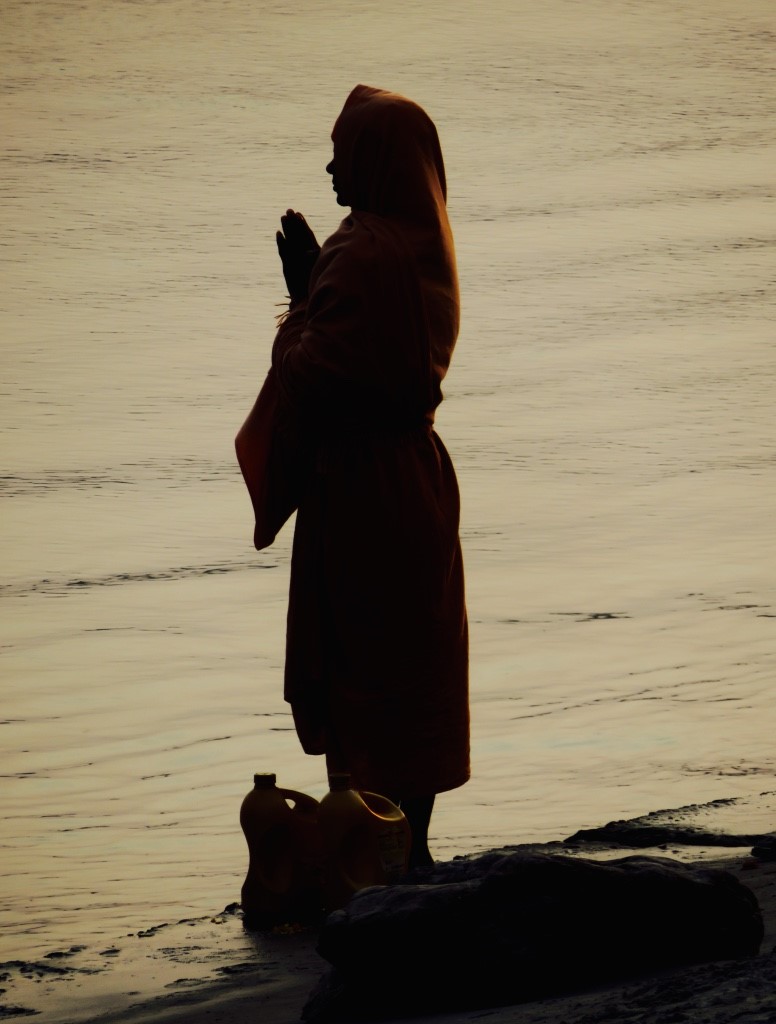

Through the thick darkness of the night I travel from Rishikesh, passing as I go thousands of chanting, flower-carrying pilgrims walking towards Haridwar, a city situated on the river Ganges. It is a holy place for Hindus, and millions come there to perform ritualistic bathing to wash away their sins and attain moksha, liberation from the cycle of birth and death.
I am shawl wrapped against the cold and arrive at the city’s railway station at 5 a.m. There are hundreds of sleeping bodies lying casually almost in heaps spread across the floors of the station. There are queues outside the toilets, but the poor are deterred from access by an entry charge. A long train lumbers slowly out of the darkness and comes to a hissing halt alongside platform one. People stir to board the carriages of the cheapest class. Its doors are locked and its windows barred, and after several attempts to enter they uncomplainingly resettle into the shadows to wait. I too am part of the waiting, and an hour will pass before entry can be gained. I leave down my backpack and draw the woollen blanket tighter round my body. Waiting, I have learnt, is an art requiring the light of attention; should I wait for something I am no longer in the state of waiting, which in itself is a profoundly active, timeless state.
After some minutes I observe an old woman hobbling slowly forward with a water can held in a thin, wrinkled left hand. Her body from the hips is bent downward into a painful decline. She moves towards a carriage, rests against it for a breath or two, then slides into a low squat, lifting her sari as she goes to a quiet defecation unto the tracks.
The smokers smoke, the sleepers sleep, the talkers talk—here so much is seen, but no one encroaches upon her public privacy. Given the conditions of the situation, it is an elegant normality of which we are all a part. She washes between her years of legs then quietly rises and ambles away towards the shadows. In her wake the perception of my mortal eye yields to the omniscient eye of inner vision; all upon the platform then are as atoms spun into an atomic dawn, to be retouched in the darkroom of universal chemistry to re-emerge in other tones, other shades, and in other places. Later I board the train and travel south, bearing a strong impression of the dignified pilgrim woman not able to afford the few rupees for an official toilet.
Ted McNamara